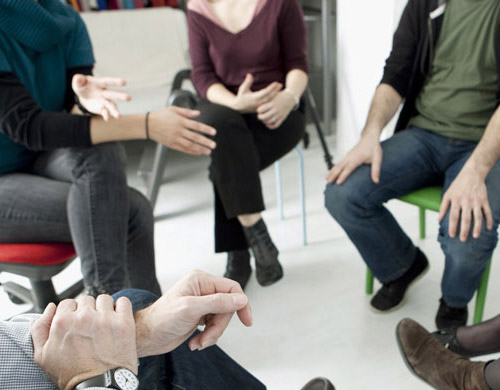If you or someone you care about has an alcohol or drug addiction you may find it difficult to address. Even though addiction is a disease, it can be effectively treated when evidence-based rehabilitation approaches are utilized. Long term addiction recovery is achievable.
Learn about how addiction recovery can be maintained if you or a loved one can apply an holistic addiction treatment approach.
What is Addiction Rehab (Rehabilitation)?
When we refer to ‘rehab’ for addiction, it includes the psychological interventions and medical treatments required to address dependencies on substances such as opiates and illegal drugs including cocaine. Rehab treatment is most effective when it is tailored to your individual needs involving a medical detox, residential and outpatient services, as well as relapse prevention techniques.

Facts & Statistics about Addiction in San Mateo
Prevalence of Substance Use Disorder, by Drug Type
(IN THOUSANDS)
- 2,7578.5%Any Substance
- 2,0886.4%Alcohol
- 1,0683.3%Ilicit Drugs
- 2060.6%Pain Medication
Drug- and Alcohol-Induced Deaths by Age Group, California, 2016
- Alcohol-Induced
- Drug-Induced
- 18 to 250.5
- 9.6
- 26 to 354.3
- 13.9
- 36 to 6424.2
- 22.9
- 65+23.7
- 9.4
Drug Use, by Selected Type and Age Group California, 2015 to 2016
- 12 to 17
- 18 to 25
- 26+
- Marijuana*13.2%
- 34.0%
- 13.5%
- Misuse of Pain Medications3.5%
- 8.0%
- 4.3%
- Cocaine0.8%
- 7.2%
- 1.8%
- Heroin0%
- 0.4%
- 0.2%
What are the treatment options available in San Mateo
By integrating treatment models, professionals can help you to identify and treat the primary causes of your substance use disorders. It is necessary to treat the symptoms of addiction, but coping strategies need to be implemented, in order for you to deal with the problems that lead to substance dependency.

Private Residential Programs in San Mateo
If you reside within the facility where you are receiving therapy, you are taking part in a residential treatment program. A primary benefit is the ability to receive integrated support and treatment throughout the day.
By moving out of your home environment and into a treatment facility, you can protect yourself from the those stressful triggers that contributed to you developing a substance addiction.
You are far less likely to relapse when you complete your treatment program in a secure center where the environment is supportive. If you struggle with a serious substance dependency, or you suffer from a dual diagnosis or co-occurring disorder, a residential rehab program is best. You can take the initial steps to recovery by taking part in an inpatient rehab program, but to overcome the challenges of the early stages of addiction recovery, you need to work at it constantly. After you complete your residential treatment program your priority will be your transition to greater independence as you focus on what you want from your new sober life.
Do You Need Help?
Our admissions team is ready to answer your questions.

Sober Living Programs
Support and guidance are provided during a sober living program in order to control your future plans more effectively. Sober living programs often include:
- Guidance daily from a house manager
- Building parameters for good recovery behavior
- Nurturing new friendships with other people who may be working through the same kinds of challenges
Outpatient Programs
Outpatient rehabilitation programs are typically more flexible by allowing you to have treatment at the treatment facility and maintain your career or life commitments.
Outpatient programs are best known for:
- Education on drug use
- Counseling and therapy such as Cognitive Behavioral Therapy or group sessions – Your personal needs can determine the duration of your outpatient program, which may extend from a few months to a year.
Detox Only Programs
The benefits of a medically-assisted detox are many, because you can eliminate the substance from your system safely and put an end to your physical dependence. As your body stabilizes without substances in your system, you could experience withdrawal symptoms.
Withdrawal symbolizes the beginning of the rehab recovery journey, and needs to be followed up by addressing the root causes of your dependency, so you do not repeat the same damaging pattern of behaviors. It is possible to still experience withdrawal symptoms and cravings for some time after your detox program is complete. Relapse is less of a threat if you are equipped with the vital skills required to navigate your life in recovery.
Paying for Private Treatment
Private treatment will have to be self-funded or claimed from your insurance provider. Many insurance providers will allow you to claim at least parts of your rehab treatment, including detox, rehab therapy, and any medications you may need. The amount of cover given will depend on the details of your policy as well as your provider’s terms and conditions. It is good practice to find out about the amount you can claim prior to enrolling in a rehab program. Our Verify Your Insurance page will help you to determine the amount of cover you are eligible for.
Clients will have to pay for the cost of treatment if they do not claim via their insurance policy. Many rehab providers provide payment plans to clients when costs are unaffordable.
State Funded Programs
State-funded treatment programs are designed for people who struggle with alcohol addiction or substance addictions and who may not be able to fund private treatment.
With the support provided with funds from federal and state resources including Medicaid, these programs may facilitate treatments including:
- Medically-assisted drug/alcohol detox
- Rehab treatment and aftercare services.
State-funded rehab programs offer support to people who reside in low income households or do not have health insurance. To qualify you will need to provide information about:
- Proof of living arrangements
- Proof of earnings
- History of your medical records and details around your addiction issues
- Proof that you have legal rights to live in the US
Click https://www.grants.gov/ to more about applying.
Follow this booklet to locate contact details of your state agency.

State-funded addiction support available in San Mateo:
Mills Peninsula Health Services Behavioral Health Department
100 South San Mateo Drive, San Mateo, CA 94401
650-696-4559
www.sutterhealth.org/millsProject Ninety Inc A Division of Caminar
416 2nd Avenue, San Mateo, CA 94401
650-579-7881
www.caminar.orgWomens Recovery Assoc Hillside House 1 A Program of HealthRIGHT 360
27 North Humboldt, San Mateo, CA 94401
650-273-4790
healthright360.org
Maintaining Addiction Recovery in San Mateo
Leaving the comfort of residential rehab and returning home can prove challenging for people starting out in recovery. When you were in rehab the environment was controlled and you had support from professionals. When you leave, you may encounter new challenges or triggers that test your coping skills in ways you may not have anticipated.
In our experience, clients with intense dependencies and those who do not develop the necessary support structure find long term recovery more difficult when they leave rehab. If you don’t have aftercare support or guidance in the initial stages of recovery, relapse can occur.
The following meetings are available in San Mateo:
NA Just for Today in the Park
Discussion: 50 E. 5th Ave, San Mateo, CA, 94401
Sunday: 11:00 am – 12:00 pm
peninsulana.orgFRIENDSHIP HALL
Romp & Stomp Group, Non-Smoking, Discussion/Participation, Speaker and Open:
2nd & Claremont, San Mateo, CA 94401
Sunday: 7:30 pm
https://www.drugstrategies.org/AA - Martin Luther King Center 725 Monte Diablo
Lunch Bunch Live Meeting and Speaker/Discussion:
W 25th Ave & Hacienda St San Mateo, CA 94403
Monday: 12:00 NOON
https://aa-san-mateo.org/
Aftercare & Alumni Programs
For people living in San Mateo county, aftercare programs extend your rehab program once you return to your daily life. Relapse may occur in up to 60% of individuals, and due mostly to the natural events of life post-rehab, having aftercare is an integral part of your journey in recovery.
When you approach finishing your rehab program, you must consider which services will support you in your long term recovery. We will establish an aftercare package that supports you. Alumni programs are a great bonus to completing rehab and allows you community access to peers and staff members.
With this network you will attend social events and receive encouragement and advice from other members who are in recovery as well. If you want to, you can also reciprocate in the program by supporting other people if you like.
Support Groups (Fellowship Meetings)
With the help of support group meetings you can enable a support structure that is great for your long-term sobriety. Recovery support groups including AA (Alcoholics Anonymous) and NA (Narcotics Anonymous) offer ongoing support with the help of the 12 steps and local weekly meetings.
During support group meetings, individual members can share their stories and empower others. Many individuals in recovery attend local meetings to assist them in their recovery journey. Support groups provide them with the necessary tools tools to maintain sobriety, allowing them to be accountable for their life.

Support for Families & Children Affected by Addiction
Those living within a family with addiction issues are affected, in various ways, by its impact. Support is vital for all family members, not just the individual struggling with the addiction. Taking part in a family support group can help you to cope better, and also empower you to provide greater support to the individual with the dependency. Some Family and Child Support Groups include:
- Parents of Addicted Loved Ones
- SMART Recovery Family & Friends
- NAMI Family Support Groups
- Al-Anon
- Families Anonymous
- Alateen
- Nar-Anon

Find Treatment in your Local County
Find addiction treatment in your local County below.
- Los Angeles
- Orange
- Riverside
- Sacramento
- San Bernardino
- San Diego
- San Francisco
- Alameda
- Alpine
- Amador
- Butte
- Calaveras
- Colusa
- Contra Costa
- Del Norte
- El Dorado
- Fresno
- Glenn
- Humboldt
- Imperial
- Inyo
- Kern
- Kings
- Lake
- Lassen
- Madera
- Marin
- Mariposa
- Mendocino
- Merced
- Modoc
- Mono
- Monterey
- Napa
- Nevada
- Placer
- Plumas
- San Benito
- San Joaquin
- San Luis Obispo
- Santa Barbara
- Santa Clara
- Santa Cruz
- Shasta
- Sierra
- Siskiyou
- Solano
- Sonoma
- Stanislaus
- Sutter
- Tehama
- Trinity
- Tulare
- Tuolumne
- Ventura
- Yolo
- Yuba









